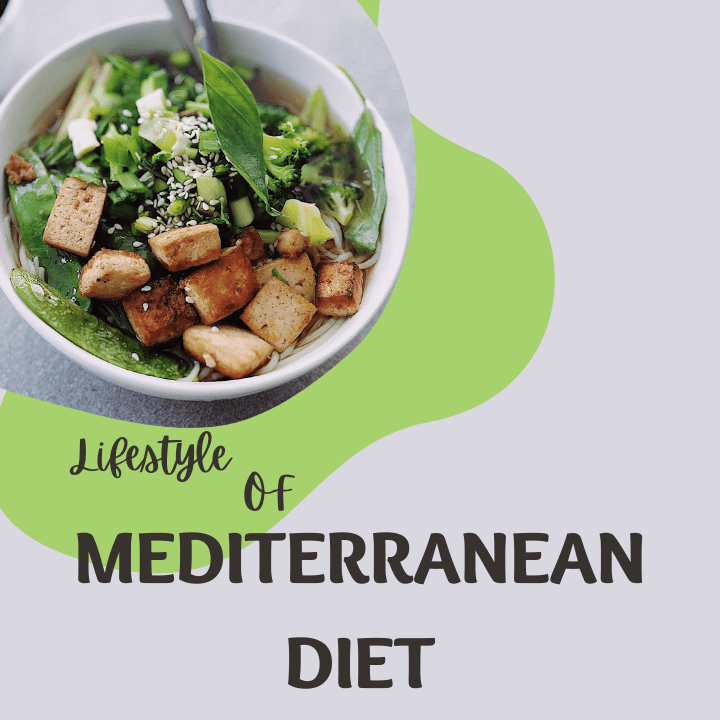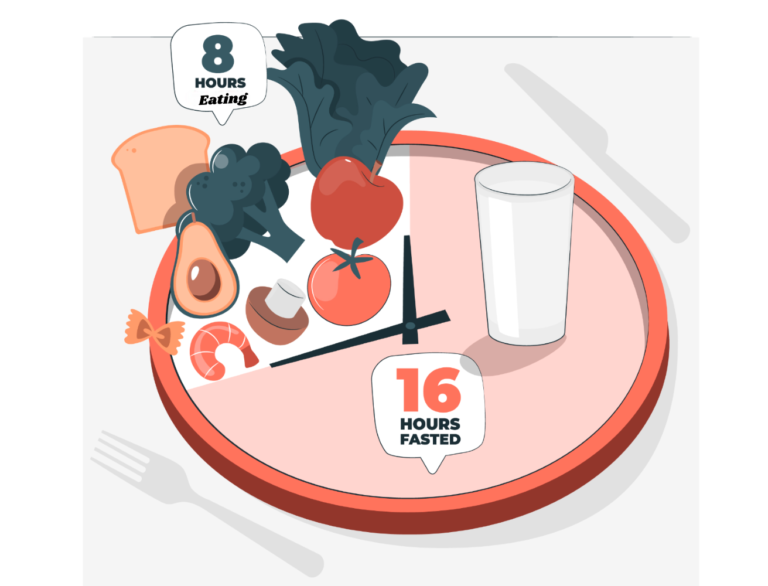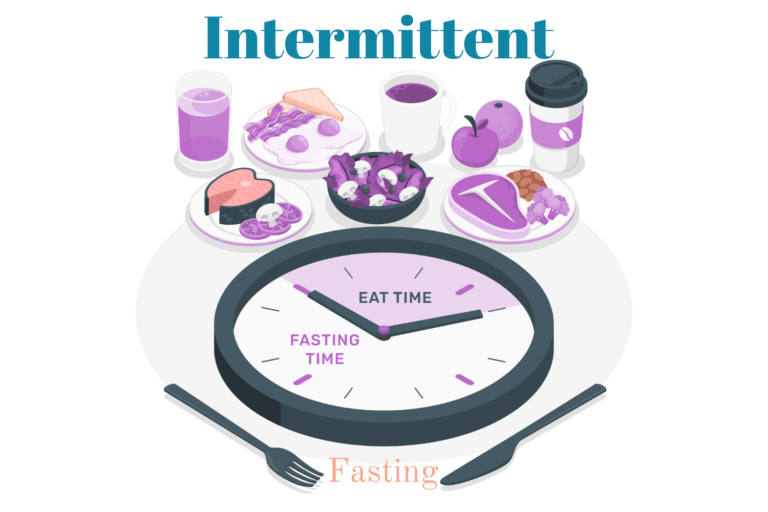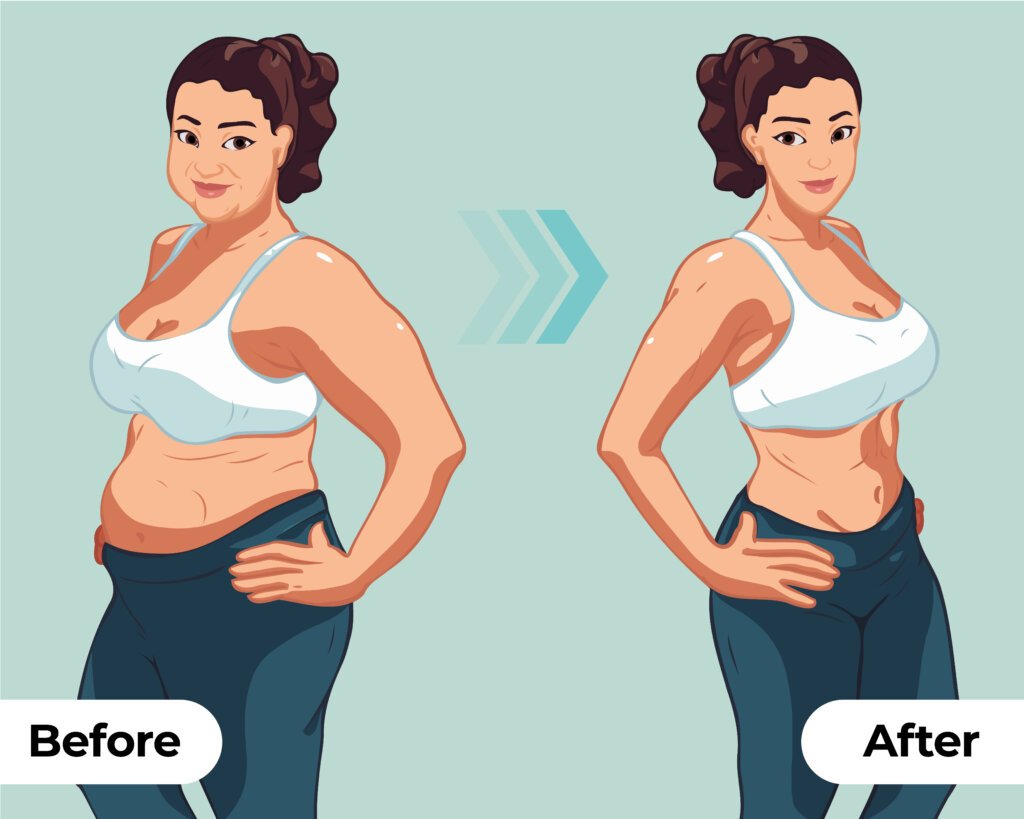15 Effective Ways to Lose Weight Without Exercise
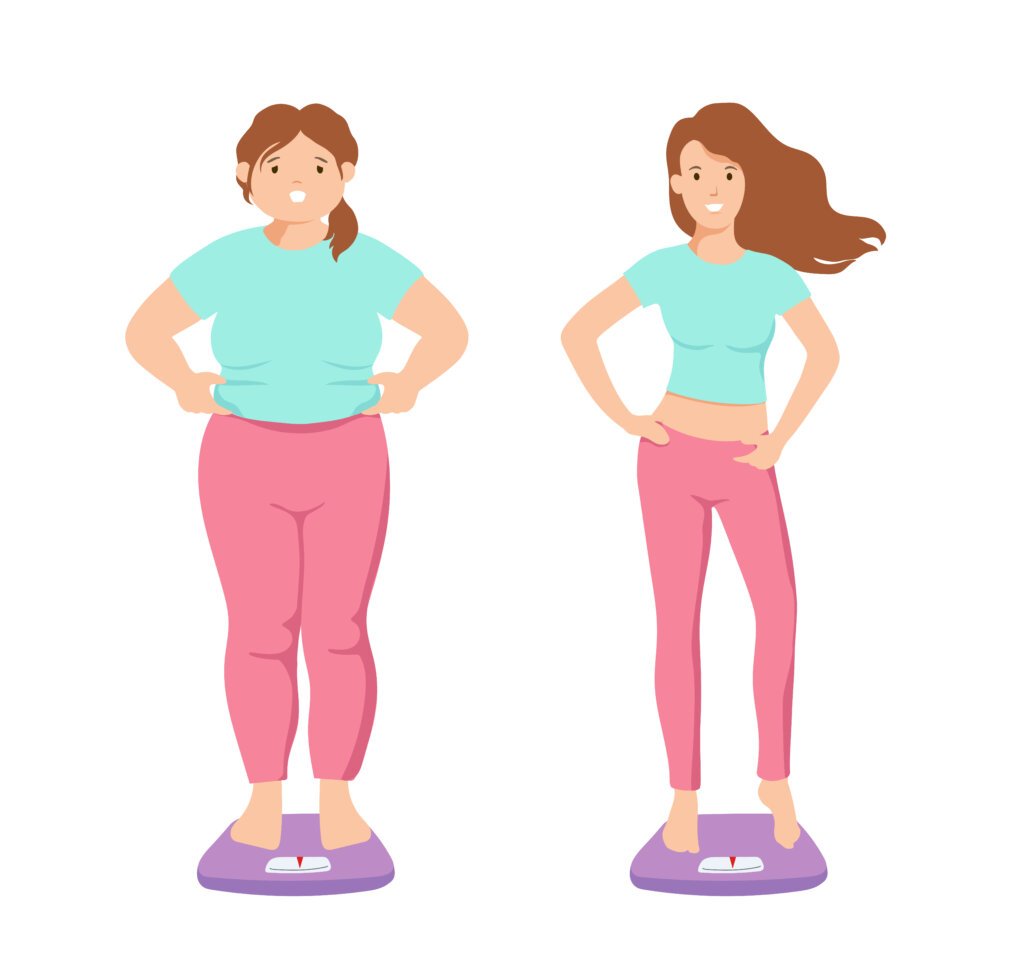
Without exercise, our diet is the only way to control our body weight. Everything is connected to something in our body; we just need to know the science behind it. There is a simple mathematical equation to control your weight: you must expend the calories that you consume throughout the day; otherwise, they will be stored in your body in various forms, most commonly as abdominal fat, leading to weight gain. On the other hand, if your calorie expenditure exceeds your daily intake, your body will burn the body fat and other stored energy in the form of gluconeogenesis to supply the deficit calorie requirement.
So from the above formula, we gather the knowledge that to lose weight, we need to burn extra calories, which we can do by engaging in physical activity. Since we are taking the path of “without exercise,” we need to limit our calorie intake. To do that, we must reduce our eating portions, have some healthy recipes, and eliminate binge eating.
Here are 15 scientifically proven ways to eat less than our normal daily habits:
1. Eating whole grains rather than processed carbohydrates
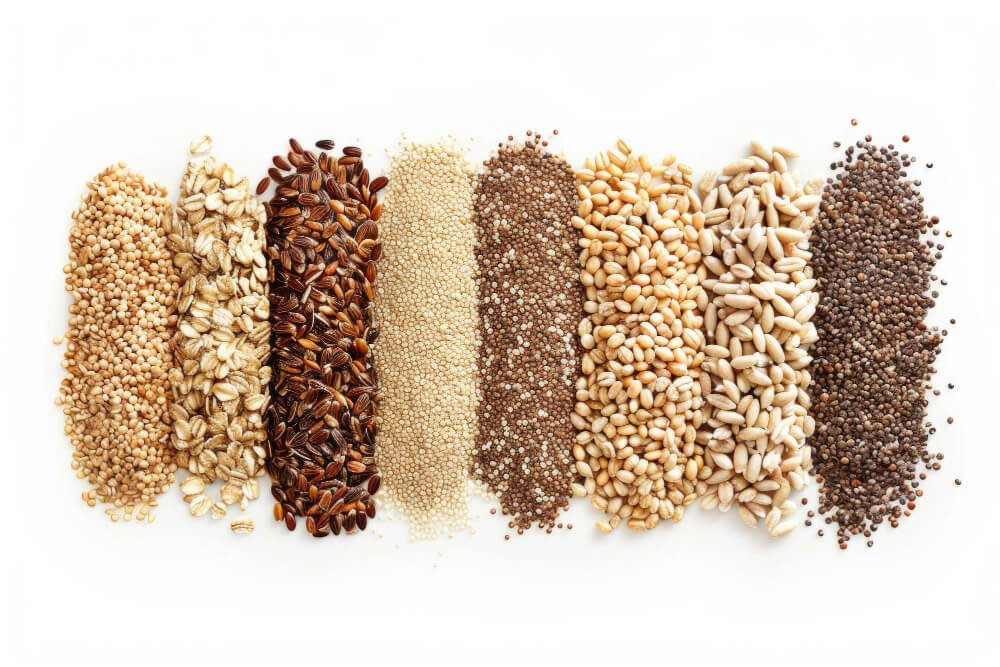
Whole grains are simply complex carbohydrates, while processed foods contain carbohydrates in glucose form. Our digestive system takes a lot more time to digest whole grains and convert them into glucose. Then the glucose mixes with our blood, providing us with energy, but this process happens much faster if we consume processed grains. As whole grains take more time to digest, our hunger will appear more slowly compared to consuming processed foods.
List of some common whole grain:
- Brown Rice
- Quinoa
- Oats
- Barley
- Whole Wheat
- Millet
2. Intake of a high amount of protein
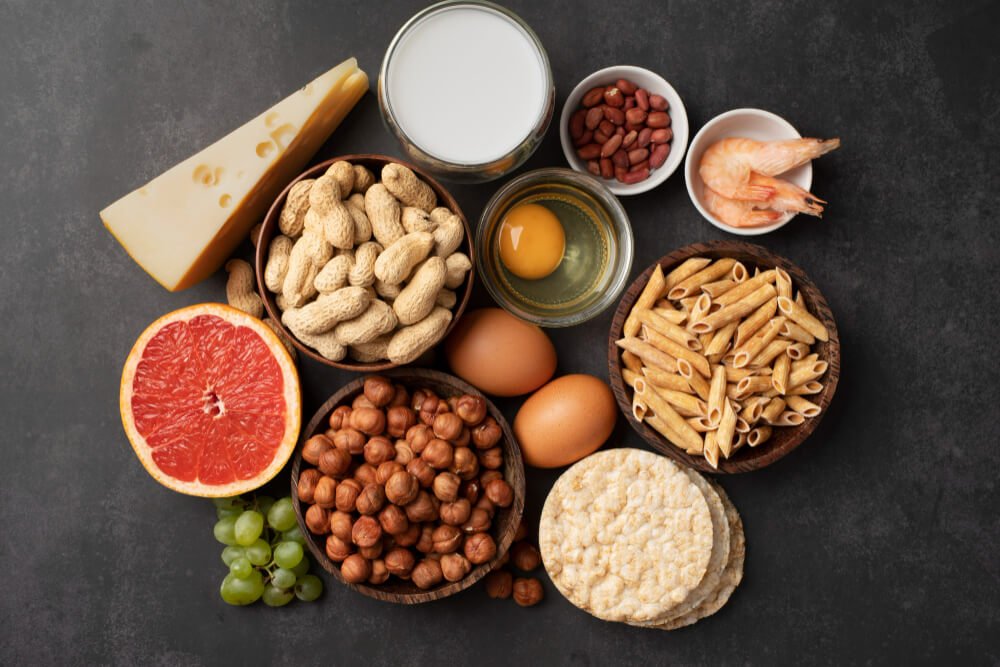
High protein intake has a significant impact on our hunger and fullness, as it reduces hunger and keeps you fuller for longer than a standard protein diet, ultimately reducing calorie intake. This happens because protein affects several hormones responsible for the feeling of hunger and fullness, like ghrelin and glucagon-like peptide-1. Additionally, a high-protein diet can reduce the risk of glucose spikes in the bloodstream and help prevent the prevalence of insulin resistance, which can lead to weight gain over time. One of the most abundant sources of protein is fish, and fish oil contains a high amount of omega-3 fatty acids, which aid in the prevention of inflammation.
List of some common high-protein sources:
- Chicken Breast: A lean source of protein that is low in fat.
- Fish (e.g., Salmon, Tuna): High in protein and healthy fats.
- Eggs: A versatile and complete protein source.
- Greek Yogurt: High in protein and can be used in various recipes.
- Cottage Cheese: Packed with protein and low in fat.
- Lean Beef: Provides a significant amount of protein along with iron.
- Tofu: A plant-based protein that is versatile in cooking.
- Lentils: Rich in protein and fiber, great for vegetarian diets.
- Chickpeas: A high-protein legume that can be used in various dishes.
- Quinoa: A complete protein source that is also gluten-free.
3. Consume more fiber
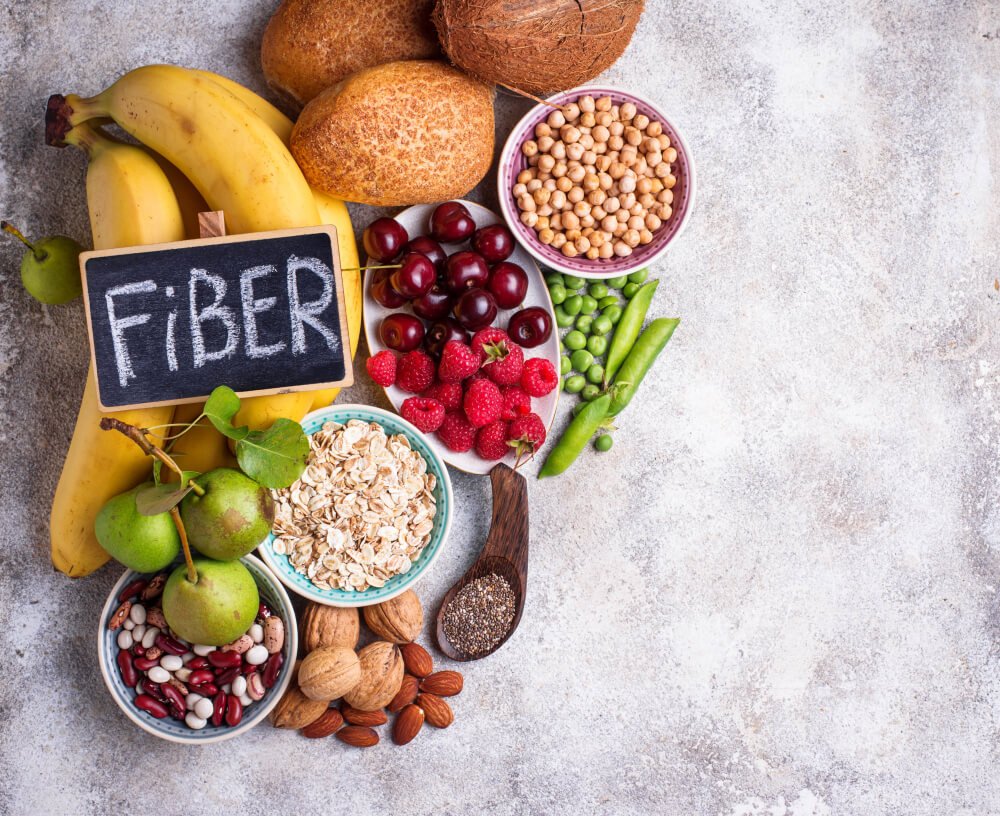
Hunger can be eliminated by consuming a lot of fibrous foods, as our digestive system can’t digest fiber easily. Fiber is a very complex form of carbohydrate that our small intestine also can’t digest, leading to gel formation that slows down digestion and moves to the large intestine, where fermentation occurs. Some research shows that fiber has 2 kcal/gram, which is lower than the normal carbohydrate, which contains 4 kcal/g. Particularly, viscous fiber, which is present in beans, oat cereals, Brussels sprouts, asparagus, oranges, and flax seeds, is mainly responsible for reducing hunger and food intake.
List of some common fiber-rich foods:
- Legumes: Lentils, Chickpeas, Black beans, Kidney beans, Split peas etc.
- Fruits: Apples (with skin), Pears (with skin), Raspberries, Blackberries, Avocados etc.
- Vegetables: Broccoli, Brussels sprouts, Carrots, Artichokes, Sweet potatoes (with skin) etc.
- Whole Grains: Oats, Quinoa, Barley, Brown rice, Whole wheat pasta etc.
- Nuts and Seeds: Chia seeds, Flaxseeds, Almonds, Walnuts, Sunflower seeds etc.
4. Drink a lot of water before your meal

Drinking plenty of water before your meal can give you a feeling of fullness, which helps prevent overeating. It works for me, and I have suggested it to many friends who have given me positive feedback. Water also helps keep you hydrated when you are on a mission to lose weight and helps prevent constipation during the weight-loss period.
5. Eat slowly and mindfully
It’s a psychological factor that when we are very hungry, we can’t control ourselves and end up consuming excess calories. Our brain needs some time to process that we are full, which will only happen if we eat thoroughly and slowly. If we eat slowly, our mind also thinks that we have had enough, we don’t get distracted, and we enjoy every bite, which helps us eat less. This is mindful eating. Studies have shown that people who eat fast tend to gain weight easily.
6. Weigh yourself after every meal
This is another psychological factor that helps individuals eat less at their next meal. It’s obvious that after eating, you will gain some extra weight, but if you see that on a weighing machine, it will give you a guilty feeling, which you will remember at your next meal and try to eat less than before.
7. Reverse your recipe ingredients
Most people think that to lose weight, they have to give up certain foods, but this is a misconception. You just need to swap your cooking ingredients. For example, if you love to eat pasta with veggies, don’t worry; just make veggies and sprinkle some pasta on it. It will satisfy your satiety, fill your stomach with fewer calories, and provide high-fiber, healthy eating. Another example is if you love to eat snacks every day. No problem! Just don’t buy them. Prepare them at home and use less and healthier oil (olive oil) to fry. This helps you reduce weight.
8. Make your dishes with healthier oils
Olive oil, Coconut oil, and Avocado oil have weight loss properties as well as other health benefits like helping to increase HDL levels in the blood and controlling cholesterol. On the other hand, conventional cooking oils like margarine have detrimental effects like weight gain and high cholesterol levels.
9. Cope with your emotional eating
Emotional eating is a disorder, and women are more vulnerable to this. Every time they get emotional, many young girls eat to comfort themselves. Some use food as a remedy for their emotional damage, which can lead to obesity. Instead, they should be productive at that time, like keeping themselves busy with household chores, hanging out with friends, spending quality time, and coping with their emotional eating.
10. Get proper sleep
Emotional eating is a disorder, and women are more vulnerable to this. Every time they get emotional, many young girls eat to comfort themselves. Some use food as a remedy for their emotional damage, which can lead to obesity. Instead, they should be productive at that time, like keeping themselves busy with household chores, hanging out with friends, spending quality time, and coping with their emotional eating.
11. Lessen your stress
When you get stressed, a hormone called cortisol gets elevated, and the dysregulation of these hormones can increase your hunger and calorie intake. Another hormone called glucocorticoid is produced by our body when we get stressed, which is responsible for increasing appetite and ultimately weight gain. Stress can also lead to emotional eating.
12. Try to give up smoking and alcohol consumption
The combined effects of alcohol and smoking on weight gain can be substantial. Both habits can lead to poor dietary choices, reduced physical activity, and metabolic disruptions, all of which contribute to an increased risk of weight gain. Additionally, quitting smoking, while highly beneficial for overall health, may initially result in weight gain due to changes in metabolism and increased appetite. Managing these lifestyle factors through healthy eating habits, regular physical activity, and seeking support for quitting smoking can help mitigate their impact on weight.
13. Reduce sugary drinks and beverages
Sugary drinks like soda, Coca-Cola, Pepsi, and juices are high in calories and don’t give any sense of fullness as they are beverages, not solid foods. They increase the risk of chronic diseases like cardiovascular disease and type II diabetes, both of which lead to weight gain.
14. Eat early at night
Eating early at night can aid in weight loss by enhancing metabolism and digestion, enabling the body to burn calories more effectively before going to bed. We should eat for at least 4 hours before we go to sleep. It assists in the regulation of hormones such as insulin, cortisol, and melatonin, which are linked to weight management and improve sleep quality and stress reduction. Additionally, it supports extended fasting periods, enhancing metabolic health and fat burning. Overall, eating earlier contributes to a more effective and sustainable weight-loss strategy.
15. Be vegan or eat only vegetables at breakfast
Eating a plant-based or vegan breakfast can aid in weight loss as it offers a high-nutrient, low-calorie start to the day. The high fiber content of vegetables helps you feel fuller for longer, which lowers your overall calorie consumption and encourages satiety. They are also low in calories and fat, which facilitates the creation of the calorie deficit required for weight loss. This approach encourages healthier eating habits and reduces the likelihood of consuming high-calorie, processed foods later on.
100% FREE SUBSCRIPTION
What content would you like to receive?


